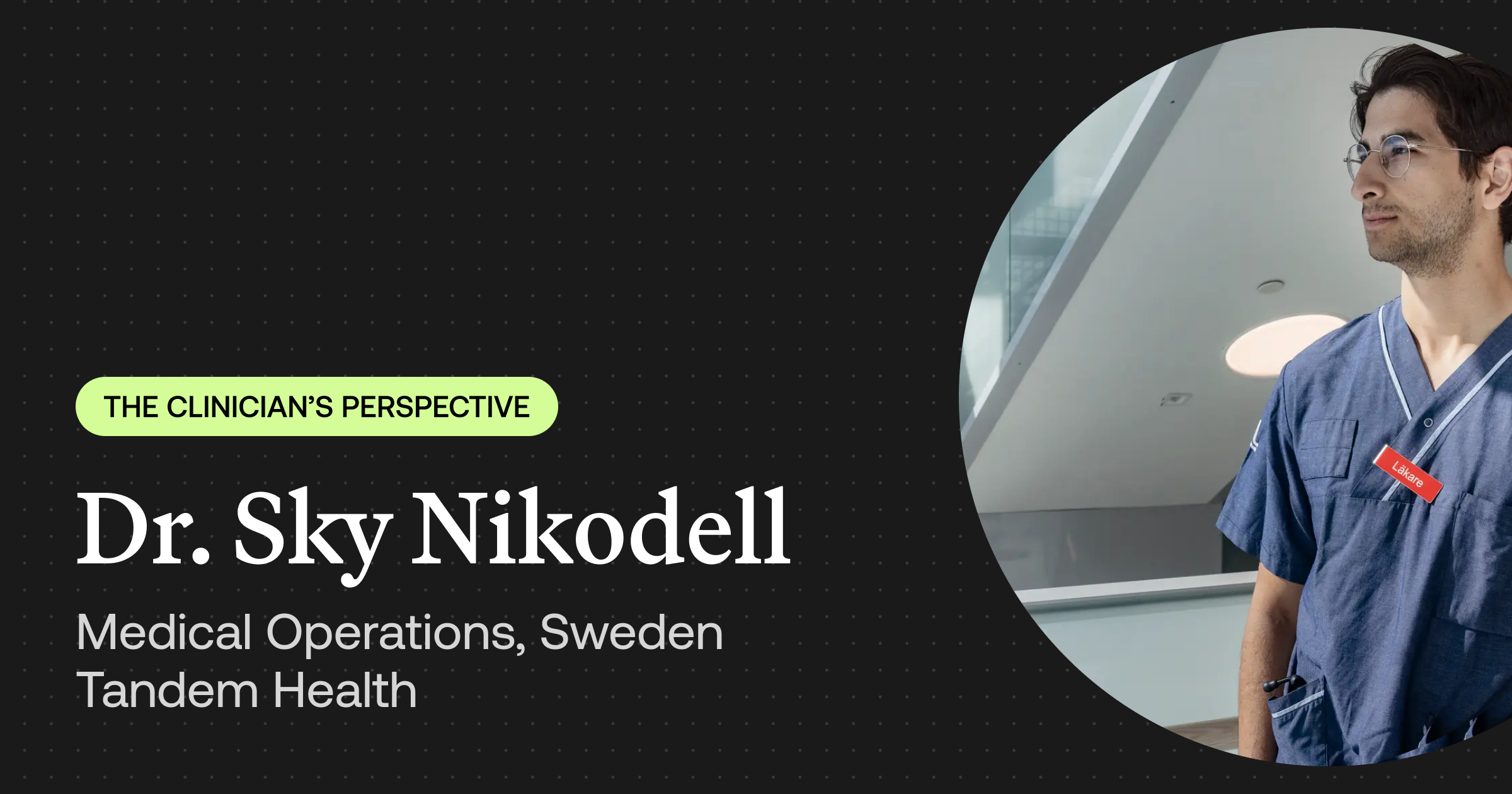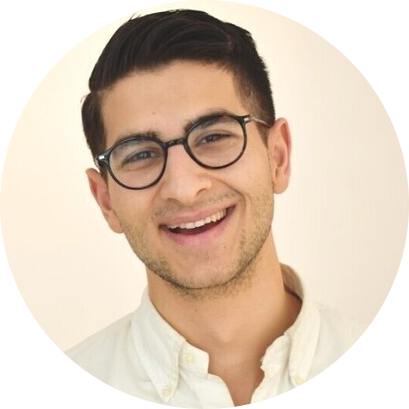Selskapet
Om oss
August 14, 2025
September 24, 2025

This article is part of our series, The Clinician’s Perspective, where we explore the intersection of AI and healthcare through the eyes of our team – former clinicians who understand the realities of patient care firsthand.
The healthcare sector is under pressure like never before. Across the globe, rising healthcare costs are colliding with shrinking workforces. In Sweden and the rest of Europe—especially the UK—physicians and nurses are reporting worsening working conditions and unsustainable workloads. It's becoming increasingly clear: if nothing changes, we risk the collapse of not just healthcare systems, but the welfare societies that rely on them.
It was into this environment that I stepped as a newly licensed doctor a few years ago. After six years of medical school, I was eager to put my knowledge into practice—to help people through one of the world’s most meaningful and important professions. I had grown up hearing that medicine was a stable, respected, and rewarding career.
But what I found was a very different reality.
Within weeks of starting my clinical rotations, I saw a system straining at the seams: overworked and exhausted staff, widespread dissatisfaction, overcrowding that was the norm rather than the exception. Junior doctors like me were stuck doing repetitive, manual tasks. IT systems weren’t helping—they were hindering us. Documentation and administrative requirements were ballooning, and ironically, support systems like IT and admin—which are meant to enable care—often became our main job.
Yes, there are many challenges in healthcare. But one stood out as both clearly solvable and deeply urgent: clinicians are spending far too much time on administrative tasks, especially documentation. One of Sweden’s largest newspapers even interviewed me about this challenge, in an article exploring how AI can help reduce administrative work and give clinicians more time with their patients.
I have always enjoyed technology and finding ways to work smarter, whether through templates, keyboard shortcuts or digital tools. Outside of work, I was also building Sweden’s largest YouTube channel for medical students, creating educational content that reached thousands of future (and existing) clinicians every week. That experience taught me the power of digital tools to improve knowledge sharing and workflows.
One day on LinkedIn, I came across a company doing exactly what I had been dreaming of. They were building technology that could listen to patient consultations and instantly turn them into draft notes, letters and certificates.
That company was Tandem.
A few days later, I was sitting in a restaurant with Lukas, our CEO, talking about how I could help. The realisation that this kind of solution already existed, and was being built right now, lit a fire in me. I knew I wanted to be part of it.
I brought with me clinical insight, two years of frontline frustration, and a deep desire to make things better—not just for myself, but for every clinician. I believe there are three ways to improve healthcare: through policy, organizational reform, or innovation. I had seen the first two up close. I chose innovation.
Innovation is how we move healthcare forward. Not in isolation, but in collaboration—with the people on the ground, and in close dialogue between clinical and technical teams. Policy and organizational change will follow, but innovation needs to lead the way.
At Tandem, we’re building tools that give clinicians back their time. That reduce burnout. That help healthcare systems survive and thrive. With my background, I hope to play a small part in solving one of healthcare’s many urgent challenges.
And for me, that feels even more meaningful than working clinically ever did.

Sky is a Swedish medical doctor and creator of the country’s largest YouTube channel for medical students. With experience in health care, business development, and IT consulting, he thrives where healthcare, technology, and business meet – building solutions that give clinicians more time for their patients.
If you’d like to discuss the challenges facing clinicians today and how AI can help reduce documentation, feel free to connect with Sky on LinkedIn.
Les mer
Bli én av flere tusen klinikere som benytter seg av stressfri dokumentasjon.